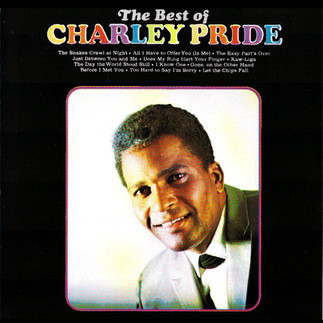Island Riddims and Country Twangs: A Jamaican Love Affair
- Dennis Howard

- Apr 19, 2024
- 4 min read
Updated: Jul 8, 2025
Jamaican music has a unique blend of sounds that may surprise some, including the twang of a steel guitar and the heartfelt crooning of a country singer. Yes, Jamaica, the birthplace of mento, ska, reggae, and dancehall, has a long and fascinating relationship with country music. This connection speaks volumes about the island's rich and diverse musical heritage.
It's fascinating to note Jamaica's deep-rooted relationship with country music, stemming from its black origins in blues. This connection underscores the diversity and richness of Jamaican musical tastes and traditions.
The seeds of this unlikely love affair were sown in the fertile ground of the 1950s. The arrival of commercial radio stations like Radio Jamaica Rediffusion (RJR) brought the smooth stylings of Patsy Cline, Patti Page, Jim Reeves, Johnny Cash and Skeeter Davis into Jamaican living rooms. With their tales of heartbreak, hardship, and resilience, these melancholy voices resonated deeply with Jamaicans.
The music wasn't entirely foreign; country music's roots in the blues found common ground with Jamaican musical traditions like mento, which also utilised instruments like the banjo, fiddle, and acoustic guitar.
Sundays became synonymous with the gentle hum of the stereogram, often filled with the melancholic beauty of country ballads. Families gathered, sharing laughter, stories, and the comforting melodies of artists like Ray Charles, Glen Campbell, The Chuckwagon Gang and the memorable Marty Robbins. Country music wasn't just background noise – it became a cherished part of the Jamaican soundscape.
Marty Robbin’s “Gunfighter Ballads and Trail Songs” is undoubtedly the most popular country album by a male in Jamaica. Among the most popular songs on the album were “Big Iron,” “Cool Water,” “El Paso,” “Billy the Kid,” and “They Are Hanging Me Tonight.” Many Jamaican singers and deejays have copied the lyrics and melodies of this album, which have been an integral feature of music-making in Kingston.
Another album that was a must-play and extremely popular was The Best of Skeeter Davis, with awesome tracks such as “The End of the World”( remade by Sanchez), “I Can’t Help You I’m Falling Too”, “Gonna Get Along With you Now” (remade By the Melodian), “ Am I that Easy to Forget" ( remade by Cynthia Schloss), "I Can't Stay Mad at You" (remade by Sanchez) and “I Will”, (remade by TT Ross)

This fascination continued well into the 70s and 80s. The smooth stylings of Kenny Rogers, the powerful vocals of Crystal Gayle, and the storytelling prowess of Dolly Parton and Tammy Wynette found a devoted audience on the island.
Kris Kristofferson, John Denver, Linda Ronstadt, Willie Nelson, Charley Pride and Canadian Ann Murray enjoyed massive plays on radio, jukeboxes and cassettes, and their songs were among the most popular. They include” Sunday Morning Coming Down”, “Take Me Home Country Roads”, “Someone Loves You Honey” (redone by JC Lodge) and “You Needed Me”.
Interestingly, these international stars often enjoyed a level of popularity that rivalled, and sometimes even surpassed, some of Jamaica's own musical heroes. Radio airwaves and record collections became a testament to this unexpected musical love affair.
When Kenny Roger performed in. Jamaica, he was surprised to know that songs he had forgotten were major hits in Jamaica and were requested by Jamaican fans. On his return, Roger had to perform some of these songs with a lyrics sheet to ensure he remembered the lyrics.
Skeeter had a similar experience and was amazed that the audience knew the lyrics for every song she performed with the Jamaican band Fab 5 backing her.
But why country music? The answer lies in the very soul of both genres. Both reggae and country are rooted in storytelling. They capture everyday life's struggles, the underdog's triumphs, and the bittersweet beauty of human emotions. The traditional sounds of revival share similar characteristics and roles in struggle, marginalisation and oppression.
Surviving and thriving despite the attempts to destroy. Reggae giants such as Toot and the Maytals, Culture, Keith Poppins and Stanley and the Turbines brought the revival `vocal tradition to their work, which is similar to the intonations of country music. Hence, it was easy for these artists to create what is sometimes described as reggae country.
With their rich cultural mosaic, Jamaicans found a kinship in the narratives woven by country singers. The music transcended geographical and cultural boundaries, speaking a universal language of love, loss, and longing. Toots and the Maytal's rendition of "Take Me Home Country Road" is a living testament to the fusion of country revival and mento.
This enduring love affair with country music is a testament to the eclectic nature of Jamaican music. It's a reminder that music has the power to break down barriers and connect people across cultures. The next time you hear the infectious riddims of reggae, take a moment to listen closely. Country music is indeed a major contributor to our musical heritage, which should be recognised.
You might catch a faint echo of a steel guitar, a whisper of a country ballad, a melody that tells the story of a unique and beautiful musical connection.
In the sun-drenched streets of Jamaica, amidst the pulsating beat of reggae and dancehall, the gentle twang of a country song continues to find a welcoming ear. It's a testament to the universality of music, a language that unites hearts across oceans and cultures.






























Comments